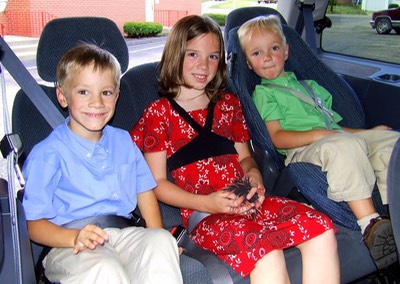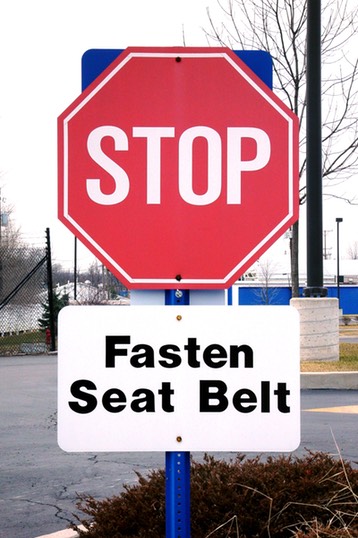
Photo by Kevin Rohr, used with permission
“Fasten your seat belt,” dad calls as he backs out of the driveway. Mason, four, continues to bounce around the back seat. Half way down the block, Dad’s friend Cliff says, “Umm, Al, Mason isn’t belted.”
“Mason, please buckle up, okay?” Dad’s pleading voice is drowned out by Mason’s loud singing. Dad pulls a candy out of his pocket and holds it up, rattling the plastic wrapping. The singing ceases.
“If you’ll fasten your seat belt, you can have this candy.” Mason grabs the sweet and fastens his belt. Cliff’s curiosity overcomes him. “Did you just happen to have candy in your pocket?”
“Oh, no. I always carry candies. It’s the only way I can get Mason to buckle up. Some trips take three or four before we get home.”
This good dad knows that safety is important and that the rule about seat belts is important. The question is whether Mason is learning that wearing a seat belt is important or is he learning how to get candy. Maybe both.
Adults who were overindulged as children complained to researchers in the overindulgence studies about not having had rules or not having to follow them. They said it made their adult lives more difficult. It may make life more difficult for the rest of us too.
Imagine, if things continue like this, how Mason will act at 18. How would you feel
· If you were his classroom teacher?
· If you were his coach?
· If you were his co-worker at the fast food shop?
· If you were his boss at the fast food shop?
· If your daughter announced she is going to marry him?
Cliff thinks about his own situation. His parents live 500 miles away and Cliff’s family visits regularly. To Cliff, seat belts are no problem. He thinks, “The kids were belted from the day they came home from the hospital. It’s not an option. It’s just part of life.” But what if, like Al, you didn’t start early and now you have to teach the buckle-up rule?

Three things:
· Tell the kids the buckle-up rule is to be followed at all times from now on.
· If they are old enough, talk about the safety reasons.
· Never, ever drive again when someone has an unfastened seat belt.
What if the kids are hassling about wearing them? Find the intervention that works for you. Here is what some parents say or do.
Chuck says, “Think about the next time you want to go somewhere. Do you think your acting like this is likely to have me want to drive you?”
Marie pulls over to the side of the road, stops the car and says, “This car does not go until all seat belts are fastened.”
Mary stops the car and waits, silently, until all belts are fastened.
Joe says in a very commanding voice, “Buckle up!”
Pamela says, “Who gave you the privilege of not following the rules?”
Bernie says, “Everyone in this car wears a seat belt. You are someone and that makes you part of everyone.”
Kelly says, “Anyone who is not wearing a seat belt has the choice to buckle up now or to get out here and walk.”
Richard says, “It’s the law. Everyone has to wear a seat belt. I’m not a law breaker so I’m stopping the car.”
There is more help about avoiding overindulgence in How Much is Too Much? Raising Likeable, Responsible, Respectful Children – From Toddlers To Teens – In An Age of Overindulgence (2014, DaCapo Press Lifelong Books).


